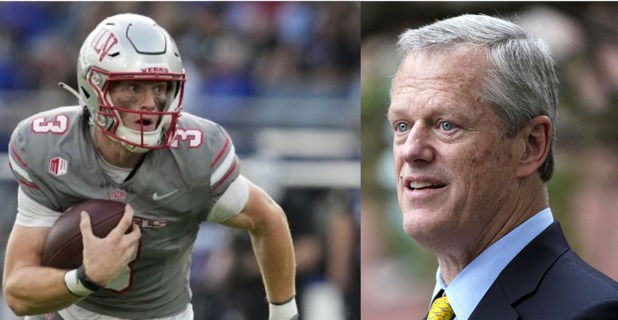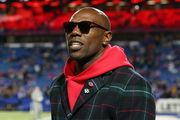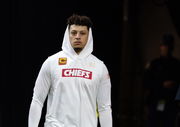

In the tempest of college football, the name Matthew Sluka has become associated with controversy that goes to the core of the modern NIL contracts. Sluka, UNLV’s starting quarterback up until last week, declared he would redshirt the remainder of the 2024 season to keep his eligibility in 2025. Why? Well, as per Sluka, he wasn’t paid the $ 100,000 amount he was promised to join the Rebels. The reality? He has only been paid $3000. We don’t know the truth of the matter, but that hasn’t stopped people from taking sides in the matter. To add to the mix, the SEC Commissioner has joined the debate.
Watch What’s Trending Now!
SEC Commissioner Greg Sankey has echoed NCAA President Charlie Baker on the current state of the NIL structure being “dysfunctional” on The Rich Eisen Show. Sankey pointed to the growing interest in NIL-related issues, implying that there is a need for greater order in the handling of NIL deals, not only as a way of reimbursing student-athletes but as a way of ensuring that a student-athlete gets what has been promised to him or her. He remarked, “It does seem to be fair and equitable to everybody,” highlighting the fact that the rules are complex and uncertain and that student-athletes often do not know who is responsible for what.
ADVERTISEMENT

Sankey expanded on his comments on the student-athlete in this new “NIL world” as he said this is just the “tip of the iceberg” since there are so many question marks on the state-by-state legislation. He was cautious that the young athletes should not have anything to fear when it comes to a level playing field on the field of play to this effect, he said. “That’s a big ask; that’s not something that has an easy button.” When entering the place of work, Sankey warned that their experiences would be vastly different from those of athletes 10 or even 20 years prior, which is why collective, protective coverage is needed in the NIL space.
ADVERTISEMENT
Matthew Sluka played college football for UNLV Rebels and was a starter, playing quarterback. In his career at Arkansas, he threw for 6,214 yards, 65 TD passes, and only 16 interceptions. Before his decision, he guided the Rebels to a 3-0 start. His agent, Marcus Cromartie, said at least one member of the coaching staff verbally promised the amount claimed by Sluka. But here’s the kicker: nothing was ever signed. Sluka then, in a social media post, said, “I committed to UNLV based on certain representations that were made to me, which were not upheld after I enrolled.” It’s a classic case of “he said, she said.”
ADVERTISEMENT
Navigating the chaos: the fallout and future of NIL in college sports
It is not only, in fact, peculiar to Sluka; rather, it is a reflection of the NCAA’s NIL anarchy. In his recent statement, NCAA President Charlie Baker criticized the “dysfunction in today’s NIL environment,” which has to do with broken promises that a university makes to its student-athletes. He posted about the “lack of consumer protection”, about athletes, let alone many of them are in essence, employed yet they are not being well protected. Well, can’t help but wonder how many other athletes are in similar boats feeling left out to dry.
The NCAA’s rules state that it is unlawful for schools to directly pay for athletes’ NIL revenue streams. In most cases, however, athletes rely on third-party collectives to manage the corresponding cash flows. Unfortunately, that system only allows plenty of room for confusion and disappointment. As Sluka’s saga continues to unfold, though, legal scholars are telling athletes: Get it in writing. As one legal expert put it, “Demand everything in writing.” That’s good advice in a time where “trust us” doesn’t quite fly anymore.
Top Stories
Prayers Pour In From Terrell Owens as 275lbs Former Cowboys Player Announces Major Health News

Footage Surfaces of Florida Police Arresting NASCAR Veteran Over Disturbing Public Misbehavior

NFL Make Final Punishment Decision on Controversial Patrick Mahomes Incident

Annika Sorenstam Bursts Into Tears as Son Makes Bold Vow During PNC Championship

Horrific Aerial Footage of Greg Biffle’s Fatal Crash Emerges Leaving NASCAR Community in Tears

Mike Tomlin Breaks Silence on DK Metcalf Incident as Steelers WR Risks $277K Punishment

Sluka is not the only one who has to handle this mess. Hearings of other suffering athletes denied their promises, and deals failed to go as planned. Although the NCAA bowed to pressure in recent years and recognized the need for change, it does not have the authority to demand high standards or guarantee that athletes are receiving ethical treatment. Baker urged Congress to intervene and set some rules to protect these young athletes from exploitation.
ADVERTISEMENT
As Sluka moves on to his next foray, he needs more than just the next team to take seriously but also crucially, the NIL environment. He is still eligible to play in the next season, and maybe he can transfer to other institutions. However, the question remains: Will he be able to get what was pledged to him at UNLV? And will he be the last quarterback to take a stand in this kind of environment? Instead, it remains on the NCAA to respond to these systematic problems to preserve college sports.
This is a wake-up call for the NCAA and its governing body on the waiting that lies ahead of it. If they do not do this, then the pundits are right, and more athletes will simply follow the path of Sluka and demand better conditions elsewhere. When one Las Vegas casino came forward with a $100,000 NIL deal to help retain Sluka at UNLV, it highlighted how critical NIL deals are now in encompassing the current collegiate athletic landscape.
ADVERTISEMENT
ADVERTISEMENT
ADVERTISEMENT
ADVERTISEMENT

